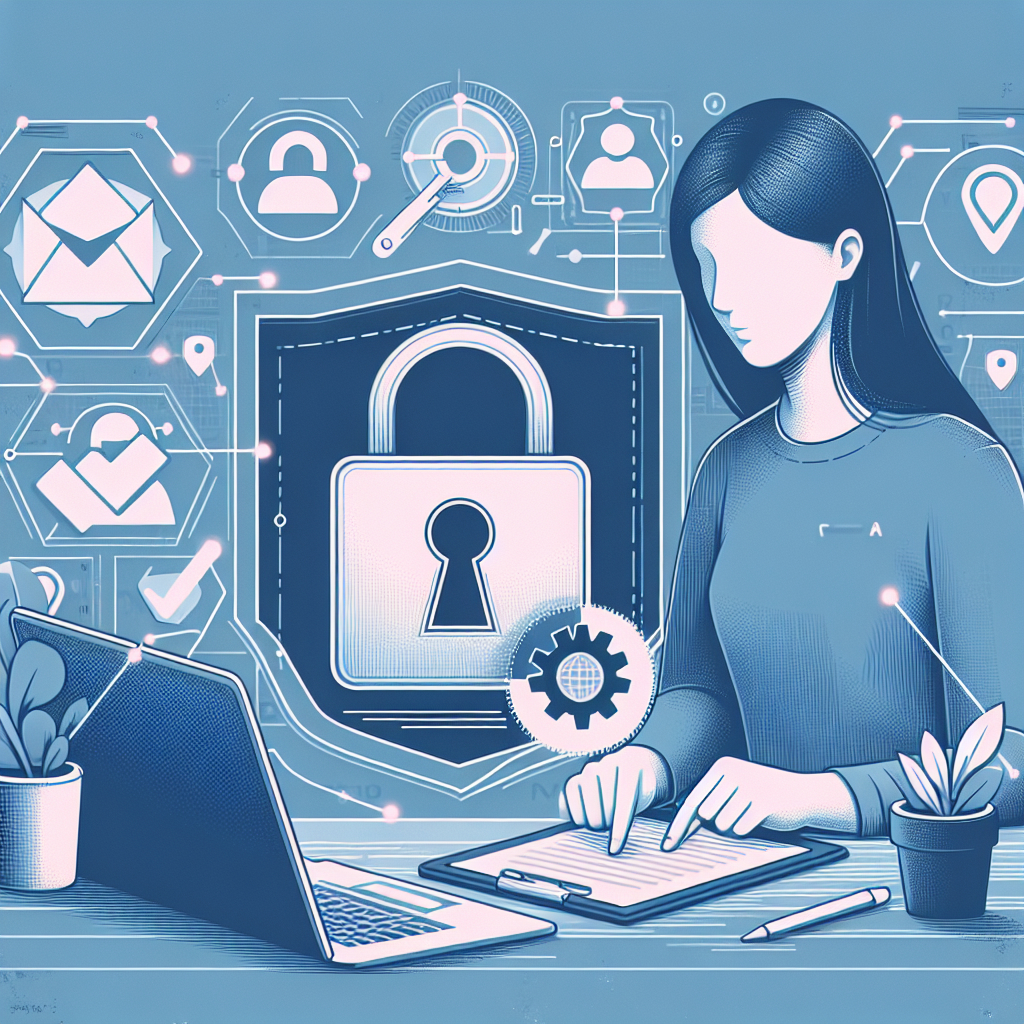Social media has become an integral part of our daily lives, offering a platform for communication, entertainment, and information sharing. However, with its widespread use comes the need to be vigilant about safety and privacy. This article will explore effective strategies to stay safe and protect your privacy on social media.
Understanding the Risks
Before diving into the methods of protection, it is crucial to understand the various risks associated with social media. These platforms can expose users to a range of threats, including identity theft, cyberbullying, and data breaches. By recognizing these risks, users can take proactive steps to mitigate them.
Identity Theft
Identity theft occurs when someone uses your personal information without your permission, often for financial gain. Social media profiles can be a goldmine for identity thieves, as they often contain personal details such as your full name, date of birth, and even your address. This information can be used to open credit accounts, apply for loans, or commit other fraudulent activities in your name.
Cyberbullying
Cyberbullying is another significant risk, particularly for younger users. It involves the use of digital platforms to harass, threaten, or humiliate someone. The anonymity provided by social media can embolden bullies, making it easier for them to target individuals without facing immediate consequences. The emotional and psychological impact of cyberbullying can be severe, leading to anxiety, depression, and even suicidal thoughts.
Data Breaches
Data breaches are incidents where unauthorized individuals gain access to sensitive information. Social media platforms are not immune to such breaches, and when they occur, vast amounts of personal data can be exposed. This information can be sold on the dark web or used for malicious purposes, putting users at significant risk.
Strategies for Staying Safe
Now that we have a clear understanding of the risks, let’s explore some practical strategies to stay safe on social media. These methods will help you protect your personal information and reduce the likelihood of falling victim to online threats.
Use Strong, Unique Passwords
One of the simplest yet most effective ways to protect your social media accounts is by using strong, unique passwords. Avoid using easily guessable information such as your name or birthdate. Instead, create complex passwords that include a mix of letters, numbers, and special characters. Additionally, use different passwords for each of your social media accounts to prevent a single breach from compromising multiple accounts.
Enable Two-Factor Authentication
Two-factor authentication (2FA) adds an extra layer of security to your accounts. When enabled, it requires you to provide a second form of verification, such as a code sent to your phone, in addition to your password. This makes it significantly harder for unauthorized individuals to access your accounts, even if they have your password.
Be Cautious with Personal Information
Limit the amount of personal information you share on social media. Avoid posting details such as your home address, phone number, or financial information. Be mindful of the information you share in your posts, as even seemingly innocuous details can be pieced together to form a complete picture of your identity.
Adjust Privacy Settings
Most social media platforms offer privacy settings that allow you to control who can see your posts and personal information. Take the time to review and adjust these settings to ensure that only trusted individuals have access to your content. Regularly update your privacy settings as platforms frequently change their policies and features.
Be Wary of Phishing Scams
Phishing scams are attempts to trick you into providing personal information by pretending to be a legitimate entity. These scams often come in the form of messages or emails that appear to be from social media platforms or other trusted sources. Be cautious of unsolicited messages and never click on suspicious links. Verify the authenticity of any communication by contacting the organization directly through official channels.
Monitor Your Accounts
Regularly monitor your social media accounts for any unusual activity. This includes checking for unauthorized logins, unfamiliar posts, or changes to your account settings. If you notice anything suspicious, take immediate action by changing your password and reporting the activity to the platform.
Protecting Your Privacy
In addition to staying safe, protecting your privacy on social media is equally important. Here are some strategies to help you maintain control over your personal information.
Limit Third-Party Access
Many social media platforms allow third-party applications to access your account information. While some of these apps can be useful, they also pose a privacy risk. Review the list of third-party apps connected to your account and revoke access to any that you no longer use or trust. Be cautious when granting permissions to new apps and only authorize those that are necessary and reputable.
Use Privacy-Focused Platforms
Consider using social media platforms that prioritize user privacy. Some platforms are designed with enhanced privacy features and stricter data protection policies. Research and choose platforms that align with your privacy preferences and offer greater control over your personal information.
Be Mindful of Location Sharing
Many social media platforms offer location-sharing features that allow you to share your real-time location with your followers. While this can be useful in certain situations, it also poses a privacy risk. Avoid sharing your location publicly and only enable location sharing with trusted individuals when necessary. Regularly review and update your location-sharing settings to ensure your privacy is protected.
Think Before You Post
Once something is posted on social media, it can be challenging to remove it entirely. Before sharing any content, consider the potential long-term implications. Ask yourself if the information could be used against you or if it reveals more about your personal life than you are comfortable with. When in doubt, it’s better to err on the side of caution and refrain from posting.
Educate Yourself and Others
Staying informed about the latest privacy threats and best practices is essential for protecting your information. Follow reputable sources that provide updates on cybersecurity and privacy issues. Additionally, educate your friends and family about the importance of privacy and share tips on how they can protect themselves. A collective effort can create a safer online environment for everyone.
Conclusion
Social media offers numerous benefits, but it also comes with inherent risks. By understanding these risks and implementing the strategies outlined in this article, you can stay safe and protect your privacy on social media. Remember to use strong passwords, enable two-factor authentication, be cautious with personal information, adjust privacy settings, and stay vigilant against phishing scams. Additionally, limit third-party access, use privacy-focused platforms, be mindful of location sharing, think before you post, and educate yourself and others about privacy best practices. By taking these proactive steps, you can enjoy the advantages of social media while minimizing the potential threats to your safety and privacy.



